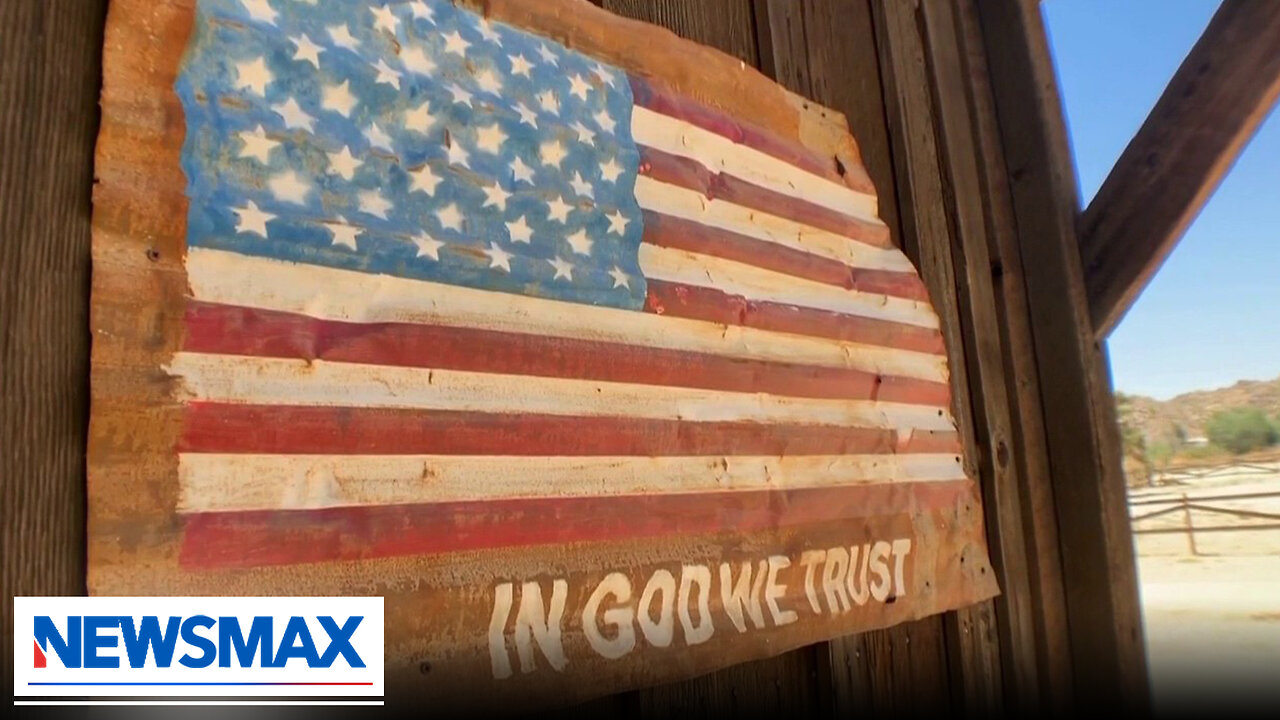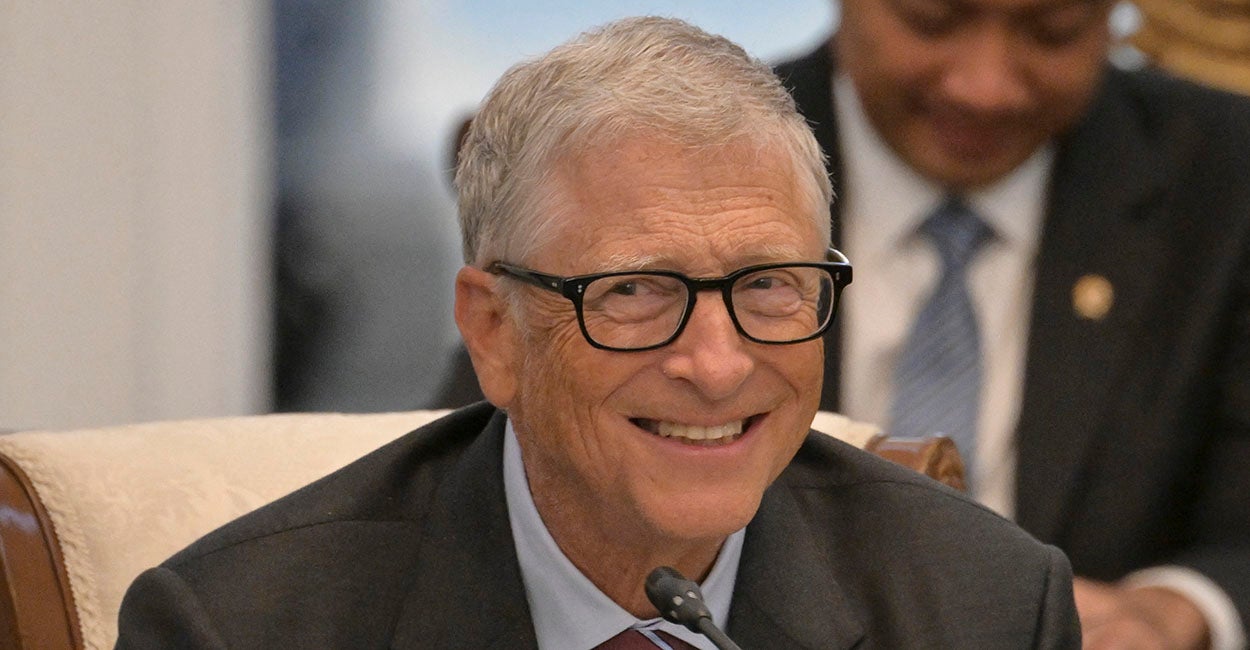Boredom: A spiritual weapon to fight the machine


Charles Dickens popularized the term in his 1853 novel “Bleak House”; 17th-century French mathematician and theologian Blaise Pascal argued that much of human activity is an effort to avoid it; and long before that, medieval monks called it the noonday demon.
Of what abomination do I speak?
I speak of boredom — though labeling it an abomination is a gross misunderstanding of it. This year, as part of my “2025 resolutions,” I’ve allowed myself to be riddled with boredom more often, white-knuckling myself into stillness when my brain itches for stimulation.
And no, this is not some kind of psychological masochism, although admittedly it can feel that way. On the contrary, my hope of becoming reacquainted with the boredom I lost touch with in adolescence is a response to this bustling, exhausting third millennium we’re inhabiting — a place where the doldrums, once a hallmark of the human experience, have been exiled by the monarch of the 21st century: technology, the strange paradox that gave us back so much of our time and then savagely stole it all back (plus some).
My bones ache for something different, something gentler and more nourishing than the brutality of this digital age. I’m convinced that welcoming boredom home is a map to greener pastures.
Before supercomputers found a home in our pockets, before social media escorted us into a digital dimension, before entertainment was a tap on an app away, ennui was a quiet companion known to all. Not so long ago, he stood with us in long lines at coffee shops, sat silently in our passenger seats, and sighed next to us in lobbies as we waited for our names to be called.
Though we might have greeted him with sighs and furious finger-drumming, boredom’s offer was life-giving, even though, ironically, his company can feel like a slow death.
Too many of us answer boredom’s inquiry without even realizing it.
Often mistaken for depression, apathy, or its evil twin, idleness, boredom is as necessary to human flourishing as sunlight, community, and sleep. That’s not conjecture, either. There are numerous scientific books published on this subject. I’ll refer to one of the most cited among them.
In “Out of My Skull: The Psychology of Boredom,” cognitive neuroscientist Dr. James Danckert and clinical psychologist John D. Eastwood define boredom like this: “A call to action, a signal to become more engaged.”
Boredom, they argue, is what happens when human agency — our desire and capacity for engagement — experiences a temporary lull. Not to be conflated with what German philosopher Martin Heidegger called profound boredom (i.e., a lingering emptiness), acute boredom occurs when humdrum hits and we don’t know what we want, only that we want something. “A desire for desires,” Russian writer Leo Tolstoy called it in his literary masterpiece “Anna Karenina.”
This desire for desires is good, Danckert and Eastwood say — it “protects us from the ruin of stagnation precisely because it motivates action.” In this way, it is a biological necessity.
However advantageous boredom may be, it’s still maddening to experience. When it shows up like an unwanted visitor, our prefrontal cortexes beg us to do something — and pronto.
Although the time it takes for our modern brains to start sending signals for engagement, please! has decreased thanks to our attention span-obliterating screens, boredom has always asked the same question: What’s next?
While it may seem arbitrary, how we answer this question every day will add up exponentially over time.
Regrettably, too many of us answer boredom’s inquiry without even realizing it. Before our brains can process that we’ve encountered a lackluster moment, we’ve already grabbed our phones (or some other device) and banished boredom with a digital dopamine hit.
Long before smartphones became the equivalent of human limbs, Aldous Huxley — a clairvoyant we don’t talk about nearly enough — predicted this would happen. “Brave New World” was a bleak and harrowing warning about “man's almost infinite appetite for distractions.”
Forty-seven years after the publication of "Brave New World," media theorist and critic Neil Postman wrote “Amusing Ourselves to Death,” in which he argued that Las Vegas, “a city entirely devoted to the idea of entertainment,” was the best metaphor to capture the zeitgeist of the age. Everything from education and news to church and commerce was delivered to us via entertaining avenues, causing public discourse to rot into mere drivel.
“We are a people on the verge of amusing ourselves to death,” he chided. And that was in 1985 — 22 years before the launch of the iPhone. How much more his words ring true today.
In “Out of My Skull,” Danckert and Eastwood reveal that digital stimulation won’t solve our boredom woes anyway. “Such attention-grabbing devices work all too well in the short term; so well, in fact, that they are irresistible when we are desperate to be rid of boredom. In the long run, the more we allow things external to us to solve the problem of boredom, the more our agency atrophies.”
So if external stimulation isn’t the antidote to a bout of boredom, what is?
The answer Danckert and Eastwood ultimately arrive at is that boredom isn’t something to be solved but something to be listened to. If we lend it our ear, we will hear a profound message: “The solution must come from within us.”
If we are successful at wrestling our appetite for external stimuli into submission, mindfulness, presence, and introspection await us on the other side.
In other words, we are the answer to our problem.
But as a Christian, I don’t think we are ever the answer to our problems. I’m not averse to mindfulness, presence, or introspection. These are all beneficial practices. But when I hold this advice up to biblical wisdom, here’s what seems apparent to me: As complex emotional beings, we have a very real need to “engage” with ourselves by processing our thoughts and feelings. Yet we have a supreme need to engage with our Creator. The best way to understand ourselves is to sit before the one who created us and knows us better than we know ourselves.
In his book “The Ruthless Elimination of Hurry," John Mark Comer says it like this: “All those little moments of boredom [are] potential portals to prayer. Little moments throughout our days to wake up to the reality of God all around us. To wake up to our own souls. To draw our minds’ attention (and, with it, devotion) back to God; to come off the hurry drug and come home to awareness.”
Coming home to awareness of an unwavering, perfect God sounds so much better than coming home to awareness of messy, scattered me. One of those presences offers quiet to calm the chaos; the other is the chaos.
I’m not arguing with Danckert and Eastwood, though. I think they’ve arrived at a truth, just not the truth. Self-attunement is an answer to boredom — and a good one at that — just like a walk in the sunshine can be an effective way to lower anxiety levels. But a walk in the sunshine as we attune ourselves to God’s presence all around us? Now that is the premium package.
“Mindfulness is simply silence and solitude for a secular society. It’s the same thing, just missing the best part — Jesus,” Comer says.
It’s like this: Why meditate on what’s causing my angry outbursts when I can lay them before a God who, knowing the innermost workings of my heart, can show me the hidden resentment and pain that are fueling the anger and then heal me of it?
Danckert and Eastwood contend that embracing boredom as an opportunity for “inward attention” allows us “to be the authors of our own lives” and "identify our desires and goals.”
A life void of boredom is a life that doesn’t resemble that of Jesus.
That sounds nice, except I’ve been the author of my life before. It didn’t go well. But living palms raised and open, ready to surrender my will and receive His — there I have found life abundant. Where psychology offers a solution that might fortify the mind, God offers an opportunity that will strengthen the mind. And the soul, too.
I choose option B.
But I’m going to have to choose it every day, probably multiple times a day, like when I hit the seventh red light on my drive home, when a random bout of insomnia has me wide-eyed at 2:00 a.m., or when I step away from my chattery computer to eat lunch and suddenly the silence is like a gnat that won’t go away.
This is not the easy path. I’ve been at it for only a short while, and I can tell you, that glowing rectangle in my pocket is one of the most formidable foes I’ve ever faced. I have to wrestle it into dark drawers or the black hole that is my purse, out of sight (but rarely out of mind), to even give myself a shot at spiritually capitalizing on boredom.
In a recent Substack article titled “The Gulf and the Silence,” English writer Paul Kingsnorth described his ironically illuminating experience losing power for two days at his home in Ireland: “Maybe when the lights go out, even for a while, and the current withdraws, a certain lightness returns. The gears and cogs are forced to retreat. The grid is the portal through which the machine enters our minds and begins to fray the edges of our souls.”
Do you get chills reading that? I do. It reminds me that to fight for mastery over my hunger for digital stimulation, which is just an appendage of the machine, is to assume guardianship over my mind and, by default, my soul. What a worthy cause to devote myself to.
But it’s also a worthy cause because to succeed is to live a life more like that of our Savior.
If I may be so bold, a life void of boredom is a life that doesn’t resemble that of Jesus. I don’t know if Jesus was ever bored or not; I would wager he wasn’t, but he was certainly not apprehensive about stillness. In fact, he regularly sought it out, eager to escape into the quiet of His father’s presence.
Comer spends a good portion of “The Ruthless Elimination of Hurry” talking about Jesus’ relationship with the eremos — a deserted, desolate, or quiet place. “‘Jesus was led by the Spirit into the wilderness’ because it was there, and only there, that Jesus was at the height of his spiritual powers,” he says, citing Matthew 4:1.
If anything is the antithesis of the eremos in our modern world, it’s not a metropolis, a swarming airport, or a packed coffee shop. It is the screen sitting on our desk, the bigger one mounted to the wall, and especially the small but fierce one in our back pocket. These digital wastelands of ceaseless noise and information beckon us to consume, consume, consume — staving off our hunger for what is truly nourishing.
In the soul-piercing words of Kingsnorth, “Maybe prayer and electricity are fighting a war.”
Observing just my own life leads me to believe that they are. The fate of that battle is in my hands, though. Welcoming boredom home as an invitation to abide in God’s presence might just be the sword with which I ensure prayer’s victory.
Originally Published at Daily Wire, Daily Signal, or The Blaze
What's Your Reaction?
 Like
0
Like
0
 Dislike
0
Dislike
0
 Love
0
Love
0
 Funny
0
Funny
0
 Angry
0
Angry
0
 Sad
0
Sad
0
 Wow
0
Wow
0









































































